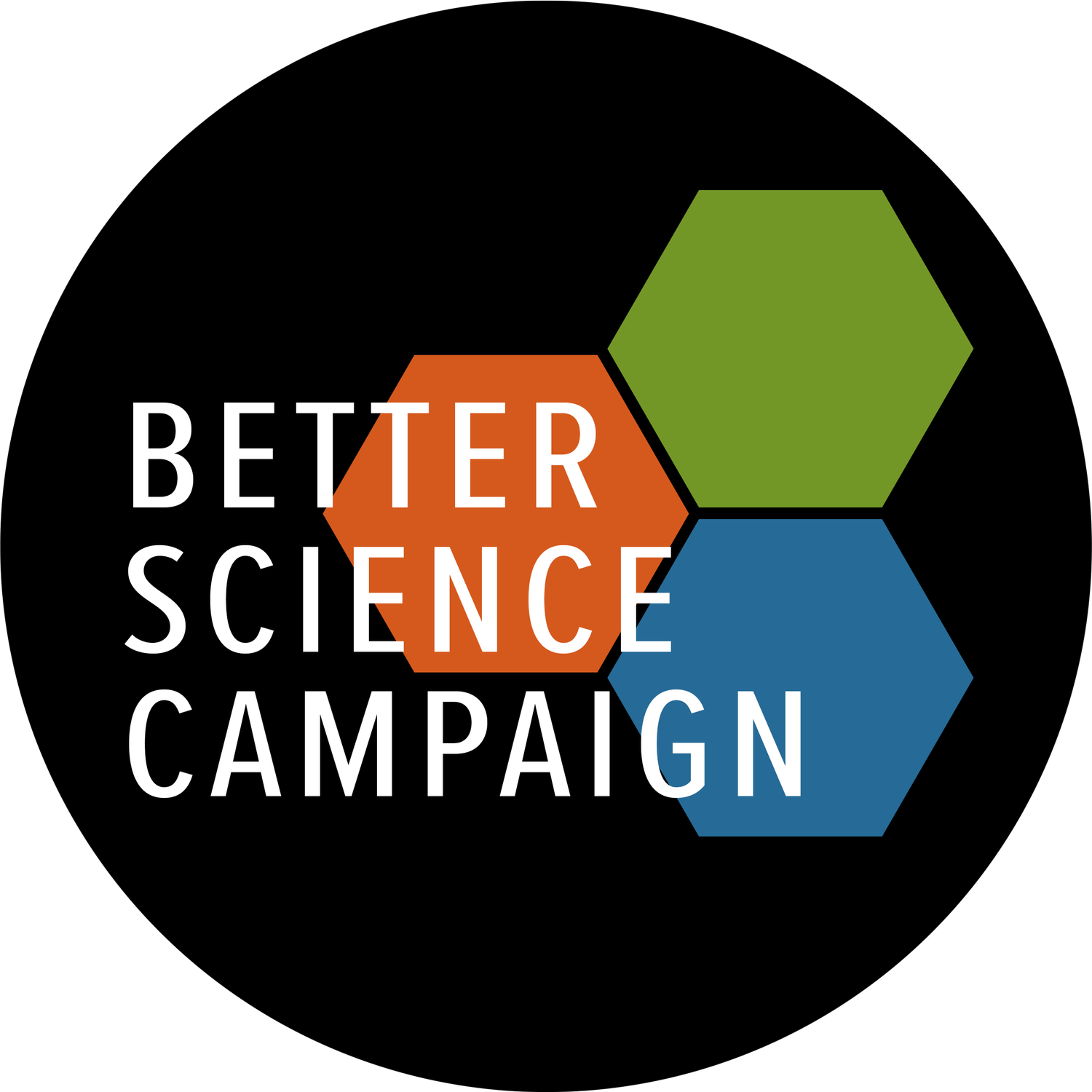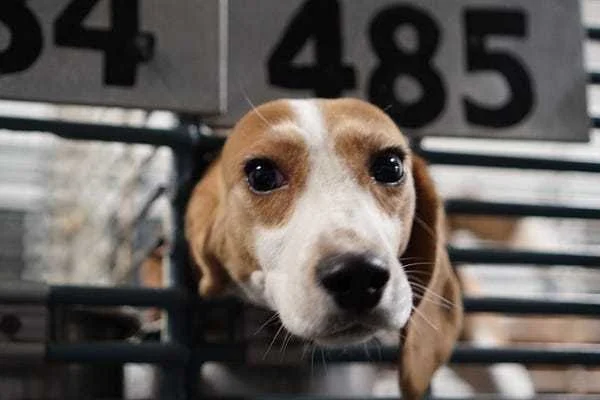BSC October Newsletter
The Better Science Campaign (BSC), is a 501(c)(3) nonprofit organization dedicated to advancing a scientific paradigm that benefits all and protects the vulnerable.
BSC promotes ethical alternatives to animal testing, focusing on collaboration with researchers willing to transition to humane practices. Unlike some groups, we avoid confrontational tactics and emphasize respectful dialogue. Our mission is to work with ethical scientists to eliminate cruel and wasteful animal experiments, prioritizing methods that respect all sentient beings and improve human health. Currently, our efforts are focused on the University of California, Berkeley.
Update: Ridglan Farms’ lead veterinarian has his license suspended by the Wisconsin Veterinary Examining Board.
By Ismael Perez, Digital Marketing Specialist for the Better Science Campaign
Photo from Direct Action Everywhere (DxE)
Ridglan Farms has been breeding beagles for nearly 60 years for scientific research. The Wisconsin Veterinary Examining Board voted unanimously to suspend the veterinary license of Ridglan Farms’ lead veterinarian, Richard Van Domelen. He may appeal the decision, but if he fails, it will impact his future job opportunities. This decision comes as Ridglan defends itself from two other significant legal issues. The first being Ridglan’s case, which involves over 300 violations, referred to the Dane County District Attorney’s Office. The decision comes after Ridglan refused to pay the Wisconsin Department of Agriculture, Trade, and Consumer Protection $55,000 in fines. The second is an ongoing criminal investigation led by a special prosecutor appointed by Dane County Judge Rhonda L. Lanford. If Ridglan struggles to care for their dogs, animal rescue organizations say they are ready to step in. Kindness Ranch’s Executive Director, John Ramer, says his sanctuary has all the necessary infrastructure to place all of Ridglan’s dogs.
See what Wayne Hsuing has to say about how the suspension could impact the future of animals in labs: https://youtu.be/XBgyIR-0QIA
Pig Organ Transplants: A False Step Forward
By Diana Navon, Founder and Director of the Better Science Campaign
Image was AI Generated
Pigs are being bred, experimented on, and killed so their organs can be transplanted into humans, and the media is calling it progress.
In recent months, a man lived more than six months with a pig kidney, China has experimented with pig livers and lungs in brain-dead patients, and the FDA has now approved clinical trials of pig kidneys in people with end-stage renal disease. To many, these developments look like the dawn of a new era in transplant medicine (for more details see the notes below.)
But something tragic is not being addressed. Every one of these experiments requires pigs to be treated as objects, as if their bodies were nothing more than warehouses for spare parts. Pigs are intelligent, sensitive, social beings. They feel joy, fear, pain, and loss. To them, their lives are just as precious as ours are to us. To frame their exploitation as “progress” erases the moral cost.
Supporters argue that the ends justify the means: that if pig organs save human lives, it is worth the sacrifice. Human history is littered with examples of exploitation justified in the name of progress. True breakthroughs must be measured not only by scientific success, but by ethical integrity. When we reduce animals to tools, we reinforce the same mindset that has excused cruelty and injustice in other contexts.
Moreover, relying on pigs is not the only way forward. In laboratories across the world, researchers are developing organoids, bioprinted tissues, and regenerative techniques using human stem cells. Because these organs can be grown from a patient’s own cells, they carry the patient’s genetic signature, making them far less likely to be rejected and reducing or even eliminating the need for lifelong immunosuppressive drugs. Decellularized scaffolds reseeded with a patient’s cells preserve the natural structure of an organ while avoiding foreign tissue triggers. External “bioartificial” livers and kidneys are already being tested in early trials as temporary support systems, helping patients survive until a permanent solution is available. To be clear, these technologies are still in their infancy; organoids are small and simplified, bioprinted tissues have not yet reached the scale of full organs, and scaffold recellularization remains inconsistent. But the trajectory is clear: human-based approaches are the real frontier of transplant medicine, and they are where our money, research, and focus should be directed, not into perfecting the exploitation of pigs.
The choice before us is not simply between human suffering and animal suffering. It is between two visions of progress: one that continues to build on exploitation, and one that insists that compassion and science can advance together. If we invest the billions now going into pig engineering into human-based regenerative medicine, we could accelerate a future where every patient in need receives an organ without condemning another species to be bred, mutilated, and killed.
For me, the question is: do we accept a system that causes terrible suffering and loss of life for non-human sentient beings, or do we work towards a humane and fair medical solution that not only is better in the long run, but honors the rights of animals to live on their own terms.
Notes:
Longest functioning pig kidney in a living human so far
A 67-year-old U.S. man is alive more than six months after receiving a kidney from a genetically modified pig. This is the longest survival of a pig organ in a living human to date. Nature
FDA approves pig-kidney clinical trials
The U.S. Food and Drug Administration has cleared a company (eGenesis) to initiate a formal clinical trial of gene-edited pig kidneys in humans with end-stage renal disease. STAT+2National Kidney Foundation+2
Second pig kidney transplant done by Mass General
Massachusetts General Hospital successfully transplanted a genetically edited pig kidney into a living human for a second time. The organ is functioning and the patient has been discharged. Harvard Medical School+1
First pig lung transplant into human (brain-dead) in China
A genetically modified pig lung was transplanted into a 39-year-old brain-dead man in China. The organ worked for nine days before the experiment was terminated (at the family’s request). Nature+1
Pig liver transplanted into a human (brain-dead) in China
In another pioneering case, a pig liver was transplanted into a brain-dead patient. The pig liver functioned for about 10 days, producing bile and other indicators of viability. The Guardian
It was removed at the family’s request, so long-term viability in a living patient remains untested.
Sign the petition to ban cross-species organ transplants:
PETA hosts an email action for us to demand that Ivy League Universities prove their commitment to the 3Rs principle and move toward compassionate and effective non-animal research:



